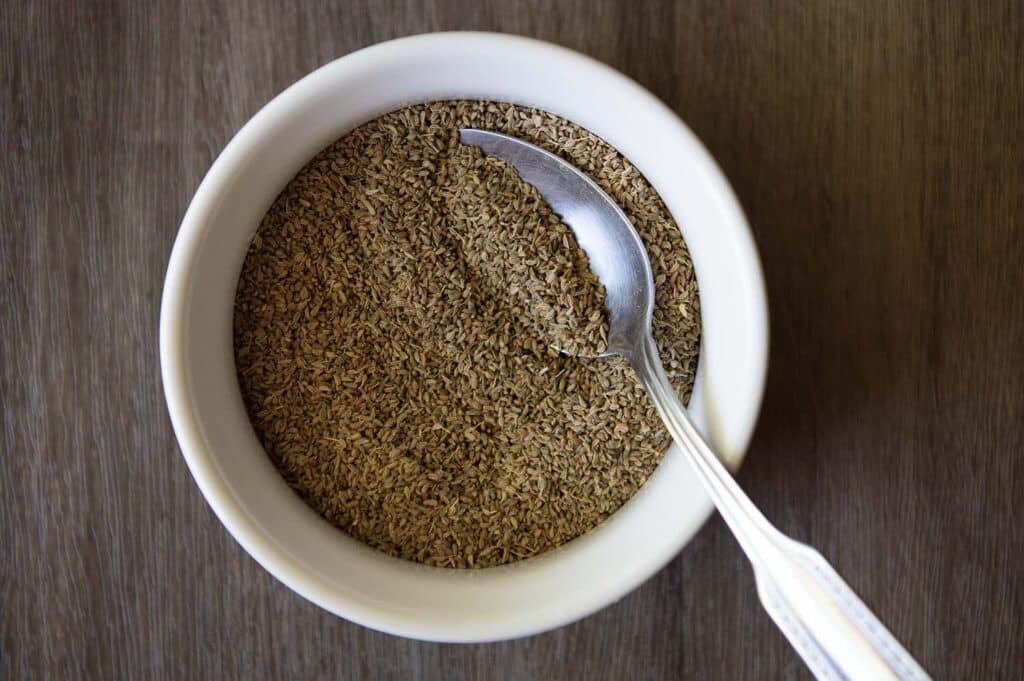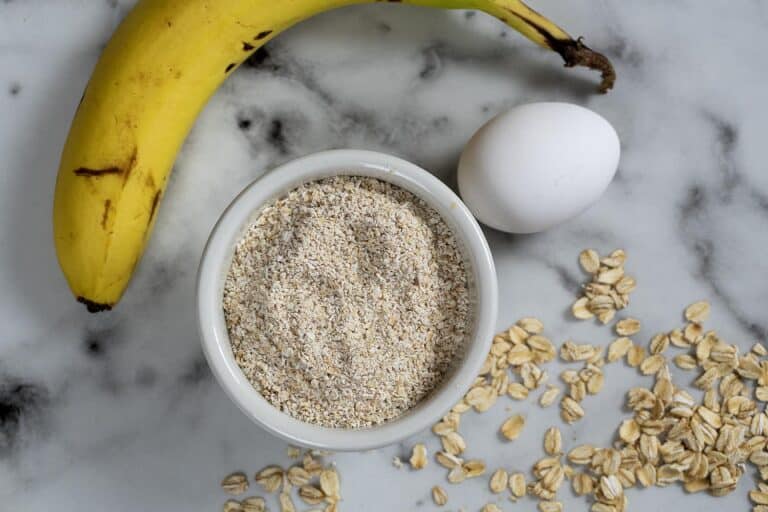What Is Ajwain In English?

Ajwain, a lesser-known spice outside of India and the Middle East, holds a prominent place in the kitchens of those regions. Known in English as “carom seeds,” these tiny, aromatic seeds pack a punch with their distinct aroma and strong, pungent taste that can add depth and excitement to a variety of dishes.
Dive deeper into what carom seeds are, where they come from, and how they are used in different culinary traditions.
Carom Seeds: Ajwain’s English Identity
Carom seeds, the English term for ajwain, are derived from the Trachyspermum ammi plant, a member of the Apiaceae family. This family also includes other well-known herbs and spices such as parsley, cumin, and coriander. The seeds themselves are small, with a color that ranges from pale brown to khaki, closely resembling cumin or caraway seeds in appearance. However, their taste and aroma are unique, often compared to thyme or anise due to their strong, biting pungency.
The Roots of Ajwain
Originating from the Indian subcontinent, ajwain has been cultivated and used in traditional cooking and medicine for centuries. The spice traveled across continents, finding a place in Middle Eastern cuisines, where it is used to flavor breads, meat dishes, and even teas. In Ayurvedic medicine, ajwain is celebrated for its digestive benefits, often used to soothe indigestion and other stomach issues.
Culinary Adventures with Carom Seeds
The robust flavor profile of ajwain makes it a versatile ingredient in cooking. It’s especially valued for its ability to enhance the flavors of a dish without needing to be the center of attention. Here’s how ajwain or carom seeds are employed across various dishes:
- In Baked Goods: Sprinkling ajwain on breads before baking adds an intriguing twist to the flavor. It’s particularly popular in buttery layers of parathas, where just a hint of these seeds can transform the entire eating experience.
- Enhancing Legumes: Adding a pinch of ajwain to lentils and beans while they cook can significantly mitigate the gassy effects often associated with these proteins. This makes the dishes more enjoyable and easier on the stomach.
- Spicing up Pickles and Chutneys: Ajwain’s intense nature is perfect for pickles and chutneys, where it contributes to the preservation process and elevates the spice profile of these condiments.
- Seasoning Meats: Carom seeds are excellent for marinating meats, imparting a thyme-like sharpness that goes well with the natural flavors of the meat, enhancing dishes whether they are grilled, roasted, or fried.
Carom seeds offer an exciting way to experiment with new flavors and add a touch of Indian and Middle Eastern essence to everyday cooking. Whether it’s through a sprinkle in your dough or a dash in your marinades, ajwain can elevate simple ingredients to create complex and flavorful dishes.
Its usage is a testament to the culinary creativity and tradition that spans across regions, making it a cherished spice in global kitchens.






